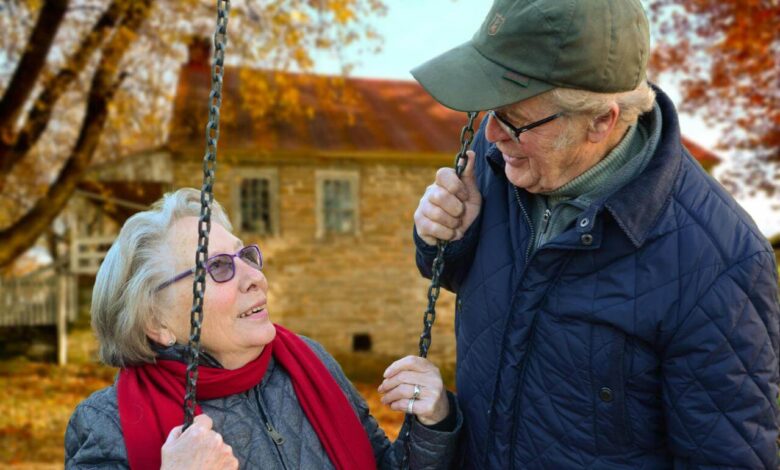8 Tips to Help You Find a Home For Your Elderly Loved Ones

In the twilight years of life, finding a safe and nurturing environment for elderly loved ones becomes paramount. This journey can be emotionally and logistically challenging, requiring careful consideration and planning. As life expectancy increases and families become more diverse in their needs and circumstances, the search for the right living situation for seniors becomes both an art and a science.
Understanding the Varied Options Available
When embarking on the search for a suitable home for elderly loved ones, it’s crucial to comprehend the spectrum of available living arrangements. Independent living communities cater to seniors who can manage daily activities independently but prefer a community setting with amenities like dining, housekeeping, and social activities. In Minnesota, such communities frequently collaborate with organizations offering caregiving services, ensuring residents have access to additional support if their needs evolve over time. This integration of independence in senior living residents in Minnesota enables seniors to enjoy a dynamic lifestyle while having the peace of mind that assistance is available when needed.
Evaluating Care Needs and Lifestyle Preferences
Assessing the care needs and lifestyle preferences of elderly loved ones is pivotal in making an informed decision. This involves a thorough evaluation of their physical, emotional, and social requirements. A detailed assessment by healthcare professionals can help determine the level of care needed, from minimal assistance to full-time medical support. This evaluation should include an analysis of their daily living activities, mobility, cognitive functions, and any chronic health conditions that may necessitate specialized care.
Financial Planning and Cost Considerations
Securing a comfortable and suitable home for elderly loved ones requires a realistic approach to financial planning. The costs associated with various living arrangements can vary significantly, from affordable independent living communities to high-cost nursing facilities. It’s essential to have a clear understanding of the financial resources available, including savings, insurance, pensions, and any government assistance programs. This financial evaluation should extend beyond immediate expenses to consider long-term affordability, ensuring that the chosen option remains sustainable as needs evolve.
Investigating Facility Reputation and Quality of Care
The reputation and quality of care provided by potential facilities are critical factors in the decision-making process. Conducting comprehensive research into each facility’s track record, including state inspections, licensing status, and compliance with regulatory standards, is essential. Online reviews, ratings from trusted sources, and personal recommendations can offer valuable perspectives on current and past residents’ experiences. Visiting the facilities in person provides an opportunity to observe the environment, interact with staff, and assess the overall ambiance.
Prioritizing Health and Safety Standards
Ensuring the health and safety of elderly loved ones is paramount in selecting a suitable home. This involves evaluating the facility’s adherence to health and safety protocols, including infection control measures, emergency response plans, and general safety features. Given the vulnerability of seniors to health complications, facilities must have stringent protocols in place to prevent and manage health risks. This includes regular health screenings, vaccination programs, and measures to control the spread of infections. Safety features such as handrails, non-slip flooring, and adequate lighting are crucial in preventing falls and injuries.
Read also Auto Excellence: Your Destination for Buying, Selling, and Repairs
Fostering Social Connections and Engagement
Social engagement and the opportunity to build meaningful connections play a vital role in the overall well-being of seniors. Facilities that encourage and facilitate social interactions can significantly enhance the quality of life for residents. This includes offering a variety of recreational activities, social events, and clubs that cater to diverse interests. From fitness classes and hobby groups to cultural outings and educational programs, these activities provide opportunities for residents to stay active, mentally stimulated, and socially connected. Creating a supportive community environment where residents can forge friendships and engage with others is equally important.
Involving Loved Ones in the Decision-Making Process
Involving elderly loved ones in the decision-making process is crucial to ensuring their comfort and satisfaction with the chosen home. This inclusion fosters a sense of agency and respect, allowing them to express their preferences and concerns. Encourage open discussions about their expectations, fears, and desires regarding their future living arrangements. This dialogue helps in aligning choices with their values and priorities. Whenever possible, arrange visits to potential facilities with them, allowing them to experience the environment firsthand and engage with staff and residents.
Emphasizing Continuity of Care and Future Planning
Planning for continuity of care and future needs is essential in selecting a home for elderly loved ones. As health conditions and care requirements may change over time, choosing a facility that offers a continuum of care can provide peace of mind. These facilities provide various levels of care, from independent living to skilled nursing, allowing residents to transition seamlessly as their needs evolve. This ensures that seniors can remain in a familiar environment even if their health situation changes, avoiding the stress of moving multiple times.
Conclusion
Finding the right home for elderly loved ones is a complex and deeply personal endeavor. It requires a careful blend of understanding their needs, evaluating options, and ensuring that the chosen environment promotes their well-being and happiness. The goal is to provide a home where elderly loved ones can thrive, feel supported, and enjoy their golden years with dignity and joy.





